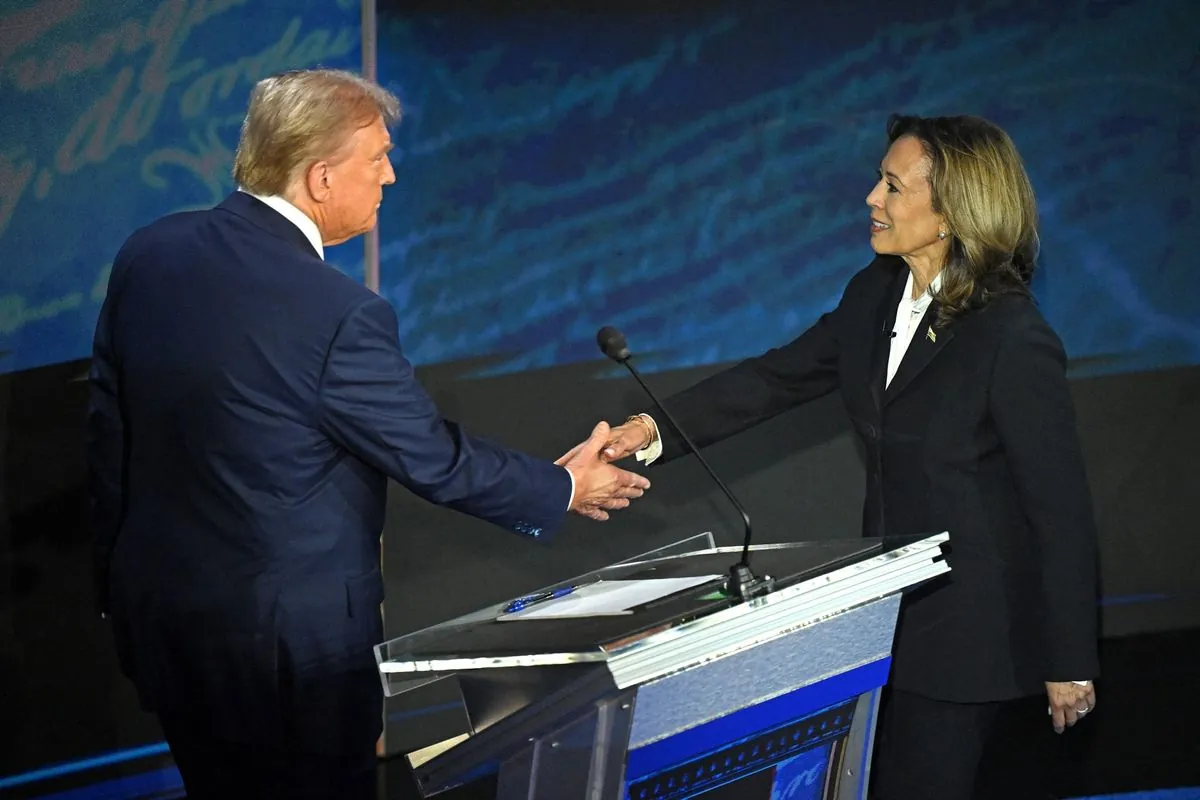Trump and Harris Clash in Contentious Presidential Debate
Former President Trump and Vice President Harris engaged in a heated debate, touching on immigration, abortion, and foreign policy. The event highlighted the ongoing polarization in American politics.

The recent presidential debate between Donald Trump and Kamala Harris has once again highlighted the evolving nature of American political discourse. The event, which took place on September 10, 2024, demonstrated the stark contrast between the candidates and the current state of political dialogue in the United States.
Trump, known for his unconventional approach, made a controversial statement about alleged behavior of immigrants, referencing an unsubstantiated internet rumor. This claim, which has been debunked, set the tone for a debate that diverged significantly from the policy-focused discussions of past presidential encounters.
The debate touched on several key issues, including abortion rights and foreign policy. On the topic of abortion, Harris asserted her stance on women's bodily autonomy, while Trump struggled to provide a clear position. This exchange highlighted the ongoing national discussion surrounding reproductive rights, particularly in light of the Supreme Court's decision to overturn Roe v. Wade in 2022.
Foreign policy discussions centered on Ukraine and Israel. Harris criticized Trump's approach to international relations, particularly his stance on Russia and Ukraine. The debate on Israel's security and the Palestinian situation revealed differing perspectives between the candidates, with Trump positioning himself as a strong supporter of Israel and Harris advocating for a more balanced approach.
"People don't leave my rallies. The biggest rallies, the most incredible rallies in the history of politics."
The debate also brought attention to the candidates' backgrounds and public perceptions. Harris, as the first woman, African American, and Asian American vice president, represents a historic milestone in American politics. Trump, on the other hand, entered the presidency in 2017 as the first without prior military or government service.
The event underscored the current polarization in American politics. With the 2020 election seeing the highest voter turnout in over a century at 66.8%, the engagement of the electorate remains high. However, the nature of political discourse has shifted dramatically since the rise of Trump in the political arena.
As the debate concluded, observers noted that while Harris may have gained a slight edge, the overall impact on voter opinions remains uncertain. The event serves as a reminder of the complex dynamics at play in the American political system, where factors such as the Electoral College and swing states play crucial roles in determining election outcomes.
In the end, this debate, like many before it, reflects the ongoing challenges and changes in American democracy. As the nation moves forward, the question remains whether future presidential debates will return to more policy-focused discussions or continue along the current path of heightened rhetoric and polarization.


































